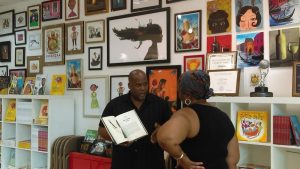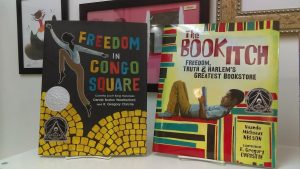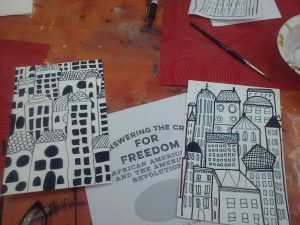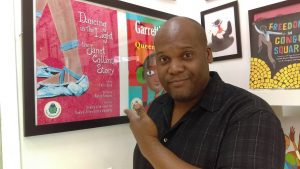Oftentimes when the term “classic” is used in discussions about children’s books, there are references to titles such as Charlotte’s Web, Where the Wild Things Are, and The Polar Express. Seldom are 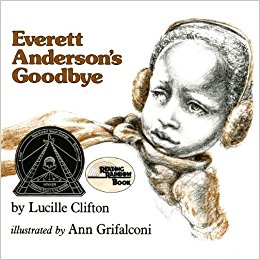 books written by and about African Americans like Everett Anderson’s Goodbye, Justin and the Best Biscuits in the World, and The Watsons Go to Birmingham—1963 mentioned in these discussions. In my opinion, books written by and about People of Color can also be designated as classics.
books written by and about African Americans like Everett Anderson’s Goodbye, Justin and the Best Biscuits in the World, and The Watsons Go to Birmingham—1963 mentioned in these discussions. In my opinion, books written by and about People of Color can also be designated as classics.
In an article published in The Reading Teacher in 2010, I argued that there are African American classic children’s books. I identified a 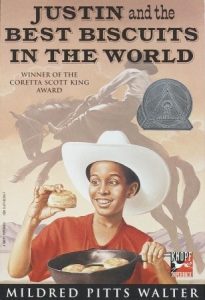 sampling of such titles—after surveying scholars of children’s literature— and placed them into the following three categories: universal experiences (e.g., death, love, and friendship) from an African American perspective, breakthrough books that are a “first” in some way or break new ground, and literary innovation (e.g., use of language, style, etc.). The above-mentioned CSK winning titles reflect these three categories. For example, Everett Anderson going through the stages of grief after
sampling of such titles—after surveying scholars of children’s literature— and placed them into the following three categories: universal experiences (e.g., death, love, and friendship) from an African American perspective, breakthrough books that are a “first” in some way or break new ground, and literary innovation (e.g., use of language, style, etc.). The above-mentioned CSK winning titles reflect these three categories. For example, Everett Anderson going through the stages of grief after 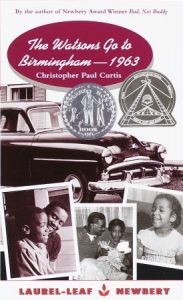 the death of his father is a universal experience, while Justin and the Best Biscuits in the World is one of the few African American children’s books to focus on the experiences of Blacks settling in the western part of the United States. The Watsons Go to Birmingham—1963 displays literary innovation for its unique use of racial humor.
the death of his father is a universal experience, while Justin and the Best Biscuits in the World is one of the few African American children’s books to focus on the experiences of Blacks settling in the western part of the United States. The Watsons Go to Birmingham—1963 displays literary innovation for its unique use of racial humor.
My article identified additional African American classics that are recipients of the CSK Award/Honor such as Meet Danitra Brown, In Daddy’s Arms I Am Tall: African Americans Celebrating Fathers, Monster, Toning the Sweep, Mirandy and Brother Wind, Let It Shine: Three Favorite Spirituals, Tar Beach, and Middle Passage: White Ships, Black Cargo.
What CSK titles do you consider classics?
Post by Jonda C. McNair
Jonda C. McNair is a past chair of the Coretta Scott King Book Awards Committee. A former elementary school teacher of students in grades K-2, she is currently a professor of literacy education at Clemson University in South Carolina.



